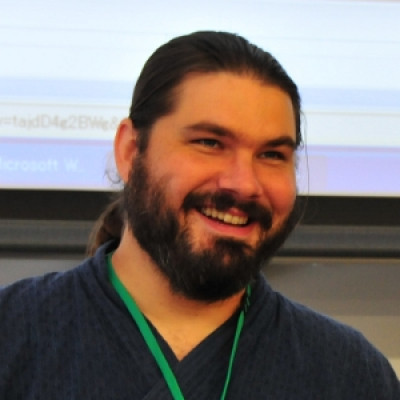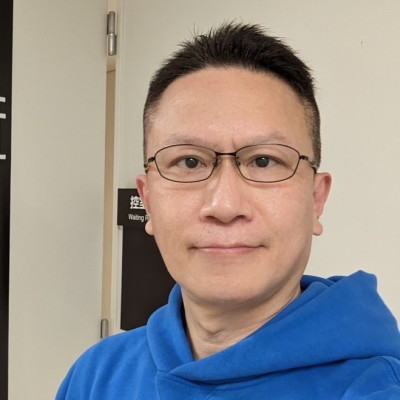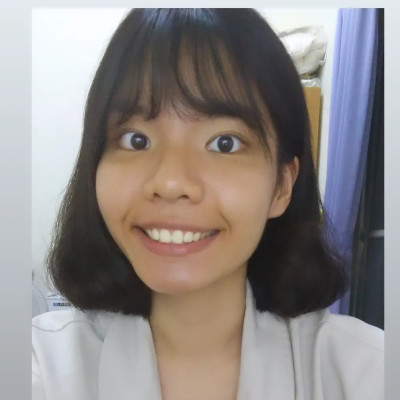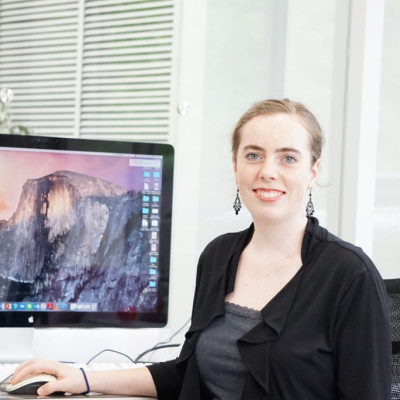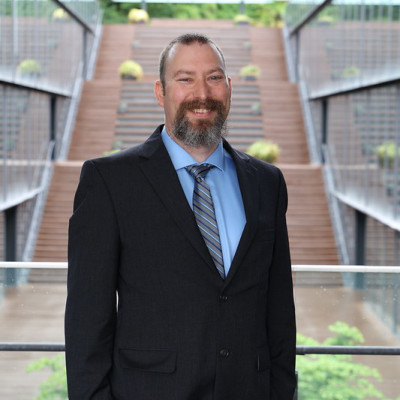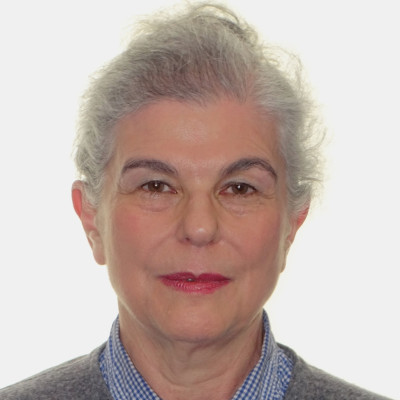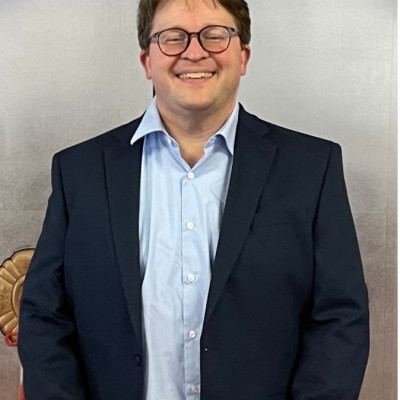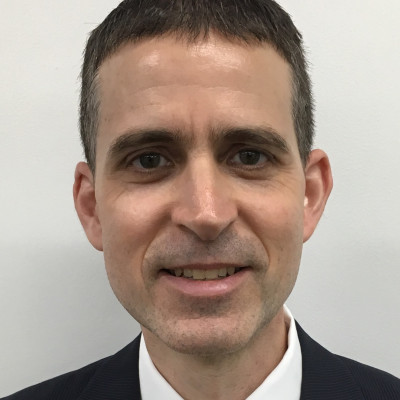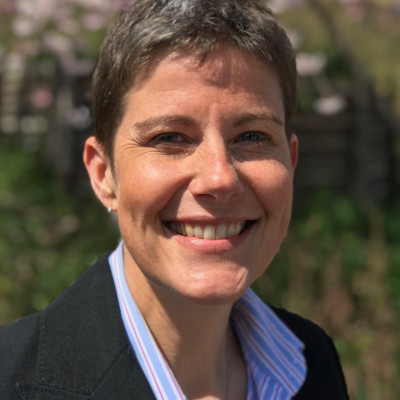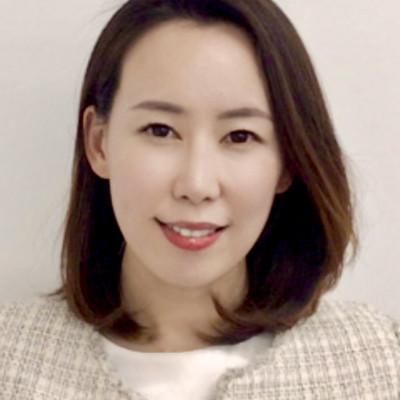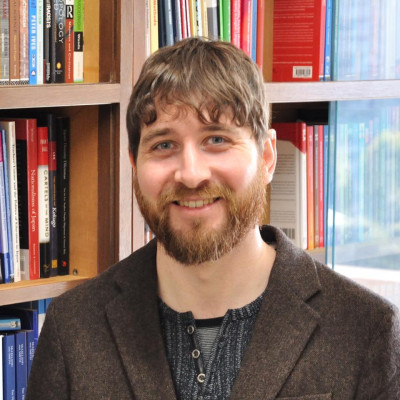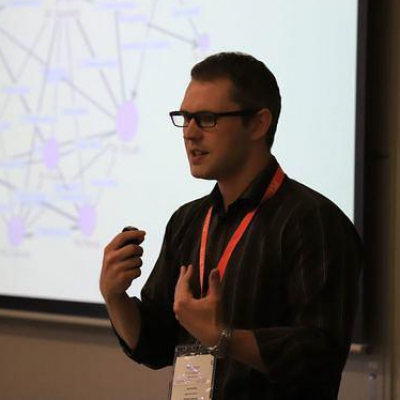Sessions / Standard Presentation (25-minute)
Cancelled Online vs F2F Learning in Higher Education: A Focus on Student Preferences #3896
The COVID-19 pandemic has fundamentally changed how education is conducted at institutions of higher education throughout the world. Prior to the pandemic, relatively few university courses were taught virtually, or online. However, as of 2023, many students are continuing to study online in various higher education settings. Although online instruction using Zoom and other tools have become widespread as a consequence of the pandemic of 2020, there would appear to be a lack of data which carefully and systematically examines the educational gains of online learning in comparison with classes that are face to face (F2F). This may be particularly important for how instruction is delivered in the foreign language classroom. As university students in Japan and elsewhere have experienced both online and face to face lessons, they are uniquely positioned to voice their own opinions regarding which methods of learning they tend to prefer and for what reasons. This research study used a bilingual questionnaire with multiple choice and open-ended questions in order to survey students who received both online and F2F learning at Japanese universities in academic years 2021 and 2022.The main research objective was to understand what students' learning preferences are, and if there had been any change in their perceptions of online and F2F learning over time.
Cancelled Global ecologies of language learning #3927
This paper will review the critical writings of Bradley and Cole on the influence of Gilles Deleuze and Felix Guattari’s philosophy on language learning. Bradley and Cole, now global experts in the field, have been collaborating on projects concerning Deleuze and Guattari and language learning (in the Asia, Europe, Middle East and Oceania context) for many years and have lectured and co-written together in many areas concerning language learning, multiliteracies and multiple literacies theory.
The Importance of Names #3899
“Identity” carries leverage in current social and educational contexts. It is included as a category under MEXT’s “four powers,” which educators are must refer to when drawing up syllabi and curriculum. Identity is both personal and social (Drew, 2023), and students gain strong senses of self when reflecting on it. “Who am I?” is a question felt keenly by first year university students.
This presentation looks at ways that students can safely explore their identity, beginning with rapport established through the learning of names (Cooper et. al, 2017). Year after year in end of semester feedback, students highlight this as a positive and useful undertaking. As semesters progress, students can become aware of differences they may have and can begin to self-advocate once they gain confidence. Both instructors and students can adapt tasks and approaches to a variety of learner and teaching needs. The initial step is acknowledgment of who students are—not only from the teacher, but from their classmates. This presentation will show how learning names affects the class for the whole of the semester, and how it helps facilitate a general openness among students to instructors, classwork and to each other.
Language Teacher Wellbeing in Times of Change. #3914
Our physiological states and emotions can often be described as ‘contagious’ for the learners we teach (Mercer and Dörnyei, 2020); therefore, if teachers bring negative emotional states to the classroom such as stress or anxiety, it is likely learners will not fully engage. Wellbeing is a state of being comfortable, healthy or happy which is not static and fluctuates over time (Mercer and Gregersen, 2020); thus, consistently acknowledging one’s wellbeing is fundamentally important.
When COVID-19 hit, English language teaching was disrupted with a majority of teachers forced into an emergency remote teaching environment which caused much change and concern. With the balance between professional and personal life challenging to manage (Pourbahram and Sadeghi, 2022), the pandemic and emergency remote teaching has likely encouraged negative influences on wellbeing hindering certain factors such as pedagogy, social engagement and lifestyle habits. Recently, with virus restrictions relaxed, institutions have now transitioned back to the physical classroom.
The presentation highlights findings from a quantitative study regarding English language teacher wellbeing during and after emergency remote teaching using Kern's (2014) Workplace PERMA-Profiler that assesses Seligman's (2011) PERMA model of 5 core areas of wellbeing - Positive emotion, Engagement, Relationships, Meaning and Accomplishment.
Exercise, Nutrition, and Sleep: The Knowledge and Practices of Japanese University Students #3922
There is a growing awareness among organizations around the world of the need to consider the whole person since, among others benefits, healthy individuals are more positive, productive, and successful. The global pandemic over the past three years has accelerated this process, bringing health concerns to the forefront. While both health awareness and healthy lifestyle practices have proven to be difference makers when confronting viruses, Japanese universities do little to support their students on these two fronts. This study investigates students’ basic knowledge and practices surrounding the three main pillars of health: physical activity, nutrition, and sleep. Ninety first-year undergraduate students voluntarily participated in this study, answering a questionnaire related to their general health knowledge and current habits. The results paint a complex picture of a student body with inconsistent and often misdirected health knowledge and practices. Though currently underrepresented, research in this area will contribute to a shift towards healthier universities, both literally and figuratively. Since classrooms are not populated by disembodied minds, but by complex physical systems, a better understanding of student health has implications for every aspect of education, from motivation to performance to enrollment. This presentation is intended for educators who want to better understand their students, and who want to help those students become the best possible versions of themselves. To this end, the presentation will discuss the implications of this research for teachers, including how they can design interventions based on its findings.
Centering Social Justice Issues in Culturally Relevant SDG Materials #3909
Since the establishment of the SDGs in 2015, a great deal of attention has been given to their achievement by the target date of 2030. This date for achievement is fast approaching, but many SDG-related social justice issues show no signs of being resolved. We believe foregrounding social justice issues that are relevant to university students in SDG education can make them more relatable. In English language teaching in Japan, the SDGs have inspired several language and CLIL textbooks. However, these materials tend to treat the SDGs as problems that must be addressed in other countries, rather than in Japan, and the emphasis is solely on the SDGs without connecting them to social issues. To fill this gap, this presentation introduces a teaching method for low-intermediate to advanced learners in which teachers and students collaboratively select social justice issues that they feel are most important ranging from gender equality to ocean pollution and climate justice. This pedagogy uses existing research to develop effective methods to teach the SDGs as both global social justice issues and problems in Japan. We discuss the efficacy of this teaching approach, our student-teacher- collaborative method for developing level-appropriate materials, and initial research findings including student reactions.
Student Perceptions of a CLIL English Debate Course - Reflecting on Student Perceptions Compared to Teacher Concerns #3915
Research suggests that CLIL courses can have a positive impact on student motivation and interest in addition to improving linguistic capabilities. However, when a CLIL English Debate course was introduced as a required course at a university in Tokyo, discussions with other teachers raised questions about its appropriateness. The participation and motivation of students, the ability of lower proficiency students to succeed, and the appropriateness of materials were questioned. Surveys were designed to assess the students’ perceptions of the course to evaluate whether their experiences matched the concerns of the teachers. Across all proficiency bands the quantitative data showed that students reported generally positive expectations at the beginning of the course and positive opinions at the end of the semester. This suggests that they did not share the concerns initially expressed by their instructors. Qualitative data was varied but generally positive. At first students were nervous about their abilities but excited to improve their language and debate skill and at the end of the semester they reported learning to think and communicate logically as well as how to focus on being understood. Responses also provided insight into opportunities to improve the course design to better match their goals and expectations.
Expanding speaking tasks with genre-based approaches #3925
Oral communication classes often focus on a limited number of tasks - namely conversation and presentation. These are important, but in this short workshop the presenter will introduce a three-step approach (modelling and analysis, production, assessment and feedback) which enables teachers and learners to look beyond traditional classroom activities towards a broader range of speaking activities. These include anecdotes, TED talks, news reports and many more.
Genres are communicative events, distinguished by communicative purpose, structure, style, content, and intended audience (Swales, 1990). Further more, genres are "structured in predictable ways.... purposeful, socially situated, and culturally sanctioned" (Thornbury, 2005: 121). The genre-based approach suggests explicit modelling of the scripts and behaviours common to language event types, and yet most oral communication classes in Japanese universities focus on a limited number of spoken genres; namely general conversation, and quasi-academic presentation or debate. In this short workshop, the presenter will describe how to expand the range of genres accessed by learners by outlining a three-step cycle for teaching spoken genres. First, in ANALYSIS, the learners examine the purpose and structure of a specific genre, the linguistic (and non-verbal) features which support the achievement of purpose. Next the learners move to the PRODUCTION stage, in which they attempt to replicate an example of the genre, moving from scaffolded production towards independence. The final stage is ASSESSMENT, in which teachers and learners negotiate a rubric to evaluate the level of achievement. The presenter will illustrate the process using 'the anecdote' as an example genre, and will also provide materials for such diverse genres as 'soap opera', 'TED talk', 'instructional video', 'news report', 'job interview' and beyond.
The Power of Student-Teacher Bonds in Japanese Tertiary Education #3908
This presentation elucidates the paramount significance of student teacher relationships in the educational landscape, with a keen focus on TESOL (Teaching English to Speakers of Other Languages) settings. Rooted in robust theoretical foundations such as Attachment Theory, Social Learning Theory, and Self- Determination Theory, we explore the multifaceted impacts of these bonds on student academic performance, well-being, and holistic development. Beyond the theoretical realm, the presentation ventures into tangible strategies for cultivating these pivotal relationships, offering educators actionable steps anchored in cultural sensitivity, active listening, feedback mechanisms, and engaging activities. We underscore the transformative potential of these strategies through compelling findings, showcasing their value in reducing behavioral issues, fostering an inclusive learning environment, and promoting lifelong learning. Emphasizing the heightened importance of these bonds in the evolving post-COVID educational terrain, particularly in TESOL contexts, the presentation concludes with a fervent call to educators worldwide to prioritize and continually nurture these invaluable relationships.
Exploring the Impact of Screencast Video Feedback in a Japanese University #3924
In recent years, the utilisation of screencast technology to provide multimedia feedback to students has gained popularity in educational contexts. However, there remains a dearth of examples showcasing this practice within Japanese universities. This presentation aims to help fill this gap by sharing the findings from a semester-long project where formative feedback on student writing on two reading and writing courses was provided using screencast video feedback. The on-going research encompasses two primary data sources: i) reflective insights from the instructor and ii) quantitative and qualitative surveys collected from the students. By presenting the results of the student surveys, this session will contribute to the existing knowledge on screencast video feedback, both in Japan and elsewhere, while the instructor provides an account of their experience in relation to prior research. The session promises to be engaging and dynamic, incorporating multimedia elements, including a video demonstration showcasing the methods employed to deliver the screencast feedback. By exploring the effectiveness and impact of screencast video feedback in a Japanese university context, this presentation offers valuable insights for educators seeking to enhance feedback practices and foster meaningful learning experiences for their students.
Passive Use in Japanese EFL Learners' English: A Corpus-based Study #3928
Japanese is considered a language that prefers to focus on situations rather than persons. Such event portrayal can affect L1 Japanese speakers’ acquisition of English, a language thought to focus more on agents. Passives are a way of backgrounding agents, and L1 expression of agency could be reflected in their L2 use. Similar interference during L2 acquisition has been observed when examining argument structure and passivisation across various languages. This corpus-based study examines written and spoken texts produced by L1 Japanese college students. It compares these to native English speakers’ language and examines indications of L1 interference in passive construction use. It finds differences suggesting that structures are carried over into the learnt language, such as the adversative passive, a feature absent in English, and relative clauses that give prominence to actions rather than actors. Indications of a different perspective during event portrayal were also found. Furthermore, the study suggests that the various functions of the passive in Japanese can contribute to a wider range of EFL learners’ use of some passive verbs, such as the potentially causative ‘made’. ‘Make’ causatives may be an area for further research on the perception of argument structure and agency during language acquisition.
International Postgraduate Researcher Authors in Japan: Two Case Studies #3916
Attracting international students for global academic collaborations and cultural exchange is a priority for many countries, including Japan. However, the Japanese system faces challenges in providing sufficient support to meet the diverse needs of its international students. Using a qualitative case study approach, including semi-structured interviews and author profiles (Lillis & Curry, 2010), we explore the contrasting experiences and reflections of two international postgraduate researchers in Japan in the medical field: KG, an Egyptian researcher and NV, a multilingual Southeast Asian researcher, concerning their academic writing and research practices. The experiences of these two international researchers provide valuable insights into the challenges faced by postgraduate researchers in Japan, through highlighting strengths and potential areas for improvement. KG's experience highlights the positive impact of a supportive environment and collaborative practices on enhancing his academic writing and research skills, while NV's disappointing and isolating experience during her doctoral studies underscores the need for improved supervision, ethics, and protection of intellectual property. By understanding the challenges these two researchers faced and evaluating current support mechanisms, we can gain valuable insights and propose solutions to enhance the overall experience for international postgraduate students studying in Japan.
Never Alone: How Friendship Can be Critical and Reflective #3921
The global pandemic required many instructors to adapt to online learning without the face-to-face support of colleagues. However, two friends teaching at universities in Japan turned this challenge into an opportunity by developing a critical friendship. They applied Costa and Kallick's (1993) definition of a critical friend as someone who asks thought-provoking questions, provides alternative perspectives, and offers constructive criticism as a friend. Hatton & Smith (1995) further emphasized that critical friendships involve collaborative discussions, encouraging open dialogue, questioning, and even confrontation to improve teaching practices. Kato and Mynard (2016) argued that reflecting with others is more challenging but offers valuable insights compared to self-reflection alone. They advocated intentional reflective dialogue, deliberately structured to foster deeper questions, as crucial for effective reflective learning. This presentation showcases the discoveries and transformations made by the presenters through their critical friendship. After a review of relevant literature, the presenters will explore how to establish a successful critical friendship. They will share data from their meetings and personal journals, demonstrating how their critical friendship has influenced the modification of their lessons to enhance the learning experience for their students. This presentation will benefit instructors seeking to engage in reflective practice by cultivating critical friendships.
A Study on the Impact of English as a Medium of Instructions (EMI) on College English Majors in Taiwan #3929
The government of Taiwan, aiming to lift English up to join Chinese as the 2nd official language, has declared that it will be officially bilingual by 2030. Projects on English-Medium-Instructions (EMI) have been spreading out and practiced in classrooms, and colleges in Taiwan are no exception. This study investigated the impact of EMI on two groups of college English majors taking a sophomore-level Introduction to Linguistics course, taught by a native speaker instructor and a Taiwanese instructor during an 18-week semester. Quantitative data were collected by 3 questionnaires, examining if the students’ engagement and self-perceived language skills had changed, and further investigating their attitudes toward EMI. Qualitative data consisted of semi-structured interviews with the students and the 2 instructors. The findings showed that: (1) The EMI course conducted by the native speaker instructor was more successful in strengthening the students’ learning behaviors and enhancing in-class interactions; (2) The EMI course taught by the Taiwanese instructor leveled up the students’ enthusiasm in embracing EMI and the students tended to feel more at ease with the Taiwanese instructor because the instructor had a better understanding in choosing materials and designing class activities tailored to meet the students’ English fluency. (3) Both student groups indicated that EMI had helped most in improving their listening comprehension, wiliness to communicate, and concentration to stay focused in class. This study calls for a bigger scale study to examine the impact of EMI on EFL learners in colleges of Taiwan, and possibly at schools of all levels.
Self-Perceptions of Teaching Capability & Teacher Identity in Tertiary EFL #3907
EFL teachers at the tertiary level are generally expected to be knowledgeable in the English language (the four skills, grammar, vocabulary, and pronunciation) and basic educational theories and practices (“Accelerate Your Career”, n.d.). Furthermore, they are increasingly expected to be well-versed in dialectal variations and other social, cultural, and political issues (Kubanyiova & Crookes, 2016), as well as educational technologies (e.g., CALL) and the latest developments in AI. In addition to these external demands, teachers face internal pressure from their teaching priorities and values (Yazdanpanah, 2015; Burrows, 2019). These pressures impact teacher identity and performance (Cheng, 2021), potentially contributing to imposter syndrome (Breeze et al., 2022). Native and non-native English faculty in Japan were surveyed in English in August 2023 about their self-reported qualifications and preparedness for the EFL field and the effects their self-perceptions have on their conceptualization and construction of their professional identities as qualified tertiary EFL teachers. Results from this exploratory study will be presented at the conference with time for audience discussion of their own perceptions, training, and experiences. Participants will be invited to reflect on their personal navigation of their professional identities and to pinpoint commonalities with other teachers.
Understanding the Autistic Language Learner #3911
The presenter draws on her own experience as an autistic learner and teacher of language. This presentation will explore how teachers' personal and professional development informs practice and helps us respond sensitively to all students including neurodiverse learners. Studies (Sasayama, 2021) estimate that at least 3% of the Japanese population is autistic. Some autistic students in your classes may not have been formally diagnosed, or be aware that they are on the spectrum. Each has a unique set of strengths and challenges. Not all will want to communicate their needs to their language teacher or receive special attention in class. To foster inclusivity in the classroom, teachers can call on both their professional skills and personal qualities to develop their awareness of students' needs and abilities and create practical strategies to support and engage all students. Freed from the emotional associations of their native language, foreign language learning can provide an opportunity for the autistic student to develop their language, communication and social skills in a new context. Understanding the autistic language learner can therefore contribute to the personal development of both teacher and student.
Investigating the Rubric for a Writing Class Using Multi Facets Rasch Analysis #3918
Analytical rubrics that use several categories, for example, ‘Use of grammar’ or ‘Punctuation’, are commonly employed. Nevertheless, rubric validity is a common concern. A rubric used in a coordinated writing program at a large university in Western Japan was investigated for validity. Five raters evaluated first and second drafts of student essays (N = 14). The raters’ scores were analyzed with MultiFacets Rasch software. They were then asked to explain ratings in interviews. Rasch analysis showed that raters’ scores as not being very consistent with the overall model. Of the five raters, two had acceptable in-fit mean squares (1.05 and 0.79), and three did not (0.55, 1.37, and 0.35). Additionally, the categories of ‘Topic Sentence’ and ‘Language / Format’ showed rater bias in the case of three out of the five raters (18 and 26 instances, respectively). In the interviews, the raters expressed diverging ideas of what constituted an effective topic sentence and of what degree of lexical / grammatical error was still intelligible. The Program Coordinators had been somewhat doubtful about this rubric. Due to these doubts, reinforced by this study’s findings, they agreed to work towards the creation of a new rubric.
Speak Up: Two Techniques to Increase Student Engagement and Participation #3902
Devising ways to increase student participation is a frequent goal of English instructors. In Japan, where students at the tertiary level are often enrolled in mandatory English courses, motivating students to speak voluntarily in class can be a challenge. The presenter will describe and discuss two techniques he has used for increasing participation: the use of question cards for class presentations and a participation point system. Question cards can encourage students – especially those at lower skill levels – to pay more attention during classmates’ presentations and to engage with presenters following presentations. The participation point system motivates students to become active learners by providing a direct link between their active participation and the participation points they earn as part of their course grade. Using this system, students can earn points throughout the semester by raising their hand to volunteer an answer, by making a comment, or by answering a question when called upon to do so by the teacher. The presenter will describe details of how each technique is carried out, as well as possible variations and potential pitfalls to avoid.
Group Emotions - What are they and why do they matter? #3930
While research on emotions has been a prominent area in applied linguistics research, especially at the tertiary level, only recently has inquiry into emotions taken a social turn. With the recently growing emphasis on positive psychology and teacher well-being, understanding how emotions are shared within a class is an important endeavor. Group emotions have been studied in organizational science, sociology, and psychology, but have been largely ignored in SLA research (Menges & Kilduff, 2015). Group emotion, or group affect, is represented by both the characteristics of the group acting upon emotions of individuals, and from individuals' emotional states and how they affect the overall group (Barsade & Gibson, 1998). This presentation will synthesize the literature related to the social context of emotions, group interactions, and group emotions as they may pertain to language classrooms. In addition, the presenter will introduce how understanding group emotions may lead to success in the language classroom, as well as when learners enter the workforce. Implications will be made as to how these may affect teacher well-being as well as directions for future research on this topic.
Examining English as a lingua franca discussions in EMI classes #3894
In the past decade, Japan has seen notable growth in English as a Medium of Instruction (EMI) courses in its universities (Bradford, 2018). While some EMI classes contain only domestic L1 Japanese students, others also contain international students. Discussions that take place in the latter context can be considered as English as a lingua franca (ELF) interactions (see Murata, 2018). This paper reports on a mixed-methods investigation conducted at a public university in Japan into how students feel about, and how they perform in, ELF discussion tasks in EMI classes. Questionnaire responses were collected from both 1st year domestic (n=48) and international exchange students (n=8). In addition, video recordings were made of groups performing ELF discussion tasks. Each group contained both English as a native language (ENL) speakers and L1 Japanese students. The questionnaire data indicated that despite some anxieties, both domestic and international students had a desire to communicate using ELF. A conversation analysis-informed examination of the interaction data showed that ENL speakers often dominated the discussions both in terms of language produced and the control they assumed over the task proceedings. However, there was also evidence of accommodation strategies used by the ENL speakers to aid communication (as also reported by Carey, 2010). The presenter will invite discussion of these points and their implications for EMI classes in Japan.
Bringing Extensive Reading to Life in a University Professional Communication Course #3895
Studies have shown Extensive Reading (ER) to be effective in not only building reading fluency but also vocabulary and grammatical awareness (Robb & Kano 2013; Waring & Takagi, 2003). However, while many Japanese universities include Extensive Reading (ER) in their English curriculum, it can be challenging to integrate into existing courses while also motivating students to read. This short talk reflects on running an ER program together with a professional communication course over five years for upper-beginner level (CEFR A2) Japanese university students. The talk will focus on how ER was integrated into the course including some of the more successful in-class and online components. It will cover specifics of using post-reading activities where students shared book recommendations through simple mini-poster presentations, speed-mingle activities and weekly ‘book-club’ discussions. Other ways ER was integrated into the course will also be outlined including types of readers used, monitoring progress, and grading.
Exploring Reflective Use of AI Assistance for Improving Writing Skills #3910
This reflective teaching presentation describes a preliminary exploration of integrating generative AI (ChatGPT) into an L2 English academic writing course at a Japanese national university. Seventeen students drafted 5-paragraph essays, received feedback and revisions from ChatGPT, then analyzed the differences between their original and the AI-corrected writing. This presentation describes the process used to enhance student comprehension of structural elements, grammar, vocabulary, argument development, and clarity, responding to calls to ethically empower students to engage with generative AI technology (Mhlanga, 2023; Zhai, 2022). The presentation draws on examples of students’ initial writing, the ChatGPT feedback and recommended revisions, as well as student questionnaires exploring their impressions of the intervention and teacher reflections on it. Additionally, comparisons of students’ writing before and after revisions will be shared, along with preliminary discussion of students’ and the teacher’s impressions of the application of ChatGPT and the activities used. Overall, students appreciated ChatGPT's ability to refine their essays and improve their writing while emphasizing that active student teacher collaboration remains important. Attendees will leave with practical insights and ideas to enhance their teaching practices, foster student growth, and embrace the potential of AI as a tool for academic success while remaining mindful of potential pitfalls.
Automated Transcription and Measures of Lexical Diversity in L2 Spoken Texts #3900
While there has been an increase in the use of transformer-based Automated Speech Recognition (ASR) models like OpenAI’s Whisper for transcribing L1 speech (e.g. Lin, 2023; Seyedi et al., 2022) using these models to transcribe speech produced by L2 English learners can be difficult due to factors such as pronunciation errors, disfluencies, and atypical grammatical constructions (Wang et al., 2021). The presenters’ previous research (Brooks & Jordan, 2023) showed that these issues can result in word error rates (WER) that are higher than those of a professional transcriber. This presentation builds on this previous research and examines the viability of using ASR programs to transcribe texts being used to investigate lexical diversity. This is done by investigating the differences in the lexical diversity scores of the automated version of 100 texts (50 presentations and 50 discussions) compared to the professionally transcribed versions of the same texts. Results show that the accuracy of ASR transcriptions comes close to professional transcriptions and that the areas where ASR is likely to make mistakes tend not to impact measures of lexical diversity. The presenters will highlight areas where ASR-based transcribers struggle and best practices for using models such as Whisper for transcribing L2 texts.
How to Deal With People Who Are Getting on Your Last Nerve #3901
Despite—or more likely because of—how much we care about and enjoy our jobs, the college or university workplace can be a stressful place. This stress can be a result of or compounded by environmental factors such as power imbalances between curriculum designers and classroom teachers, cultural miscommunications between teachers and admin staff, gaslighting co-workers, and the ever-present job insecurity that dogs a majority of college and university instructors. Not surprisingly, tempers can fray and conflict with students, administration staff, and other teachers may ensue. In this presentation, I ask if anger is ever justified in a college or university context, where an ethos of professionalism seems to outlaw any emotional response, especially negative ones. After a brief introduction to the insights on anger (and if and when it is justifiable) offered by ancient philosophy via the modern Swiss/Britsih philosopher Alain de Botton, I will discuss some conflict resolution strategies and how they can be used in and outside the classroom. Throughout the presentation, the audience will be encouraged to share their own experiences, insights, and tips for dealing with conflict in the workplace.
Seeking space, empowerment, and opportunity #3905
Pressure and constraints can lead to cynicism and resignation, and educators need to understand the constraints upon their practice but, rather than feeling disempowered, they need to empower themselves by finding the spaces and opportunities to manoeuvre (Benson, 2013). For many in the University education field, he search for space and opportunity is one of the reasons we pursue new goals and professional development. This presentation will highlight the significance of addressing a variety of challenges in working and growing in a University setting, as explored through two separate but similar perspectives; a university English lecturer, and a learning advisor. Drawing from their personal and professional development, the speakers will share their journey throughout their first semester, focusing on the learning advisor course they undertook together, the process of adapting to a new workplace, and the delicate balance between work, research, and motherhood. Through personal experiences and insights, the presenters will offer valuable perspectives on these topics, underscoring the importance of overcoming challenges and embracing imperfection in the educational setting, with an emphasis on the role of empowerment, resources, and opportunities that helped in navigating constraints.
Queuing for Retirement: Preparing for a 20-million-yen post-retirement. #3917
As the global population ages and retirement becomes a reality for many people, the need for effective financial planning cannot be overstated. In 2019, a report prepared by the Japanese Financial Service Agency (FSA) stated that an average couple will need 20 million yen to supplement their pensions to fund a 30-year post-retirement life (Nohara & Takahashi, 2019). Japanese were shocked by this figure because many simply did not have such funds or could not imagine accumulating such a substantial sum by retirement. Tertiary educators should also consider this reality if they plan to live in Japan beyond retirement. Although the FSA’s calculation was lambasted by the public, the 20-millionyen figure has become the benchmark in preparing for retirement.
Beyond Lessons: The Evolutionary Journey of a Beijing Primary School English Teacher #3903
Amidst the global trend of early English education, China's Ministry of Education outpaced Japan by introducing English as a school subject from the third grade of primary school in 2001, nearly two decades before Japan's similar action in 2020. This presentation provides a deep-dive into a narrative inquiry case study focusing on a primary English teacher in Beijing, tracing her 20-year career trajectory to offer insights into self-growth as an integral element of professional development. I employed Chase's (2018) narrative analysis framework, treating "each account in its entirety and integration among its parts" (p. 14). Using NVivo 14 for data organization, I derived insights from the participant's narrative accounts in two distinct periods: 2003 and 2018. The study unveiled three findings: It charts the participant's evolving identity as a primary English teacher over the span of two decades. It delineates the intricate relationship between primary English teachers and broader Chinese society. Lastly, it outlines the growth and transformation of China's educational system. While comparing these insights with studies of elementary English teachers in Japan, I amplify the importance of the narrative inquiry approach and aim to stimulate meaningful discourse on professional development in primary English teaching within the global context.
Still CLIL: A Language Teacher’s Reflection on a Decade of CLIL Practice #3904
CLIL (Content and Language Integrated Leaning) is an approach in which authentic, meaningful academic content is taught in connection with language. The two components are, as the name states, integrated. Neither is possible without the other, although one may take priority at certain times, depending upon students’ needs. This presentation draws upon a decade of experience in planning and teaching CLIL and CLIL-based courses in subjects such as environmental studies, gender issues, health and wellness, and intercultural communication. After a brief review of the speaker’s 2016 presentation and onCUE Journal article, specific examples of syllabuses, activities, and materials will be shared (Aoki, 2016, pp. 93-100). Special emphasis will be given to demonstrating how academic subjects can be selected and scaffolded, even for students with a wide range of language skill levels. Finally, the unique skill set which trained, experienced language teachers bring to the CLIL classroom will be explained, and current and future directions in CLIL will be discussed, especially the importance of globalization, sustainability, and social justice, which the presenter considers crucial for education in the 21st century.
Alienation and teacher well-being: a research agenda #3913
In this talk, we outline the basics of Rahel Jaeggi’s examination of Alienation, which she defines as the “absence of a meaningful relationship to oneself and others” (2016). Jaeggi’s work is situated in the tradition of critical social theory, based on a revision of Hegelian-Marxist philosophies. These ideas will be familiar to anyone who has ever felt estranged from their own life, anyone who has wrestled with a sense of indifference, isolation or meaninglessness. We argue that these issues are of heightened relevance to foreign language teachers now in the aftermath of the global pandemic, which highlighted the precarity of international borders and redefined many of our social interactions. In particular, as foreign teachers working in Japan, we explore some of the issues that have led to feelings of alienation in our own experiences. In this talk, we will outline the types of research that could shed further light onto this issue, (such as autoethnography, introspective techniques, reflective practice) and describe a forthcoming project which is designed to examine the concept of alienation first-hand from the perspective of foreign teachers living and working in Japan.
The Relationship between learner proficiency and formulaic language use #3919
Lexical phrases, defined here as multi-word units (MWEs) used to organize text, provide the glue that holds learner essays together. These discourse marking phrases and other formulaic language have been shown to be particularly challenging to learners even at the highest levels (ciation). This presentation will discuss the results of an analysis of learners’ use of lexical phrases in essays and the relationship between MWE use and proficiency level.
Lower-level learner writing has rarely been examined in the context of learner corpus research nor has an attempt been made to determine a profile of lexical phrase use for learners at different proficiency levels. As such, the research discussed here sought to determine the relationship between learners’ use of lexical phrases in their writing and their proficiency level as determined by the 1) their performance on the TOEFL and 2) their essay grades.
The results indicated that lower-level learners used more lexical phrases to scaffold their writing. In early submissions, lower-level learners used a greater range of phrases as well, however this trend reversed with later submissions. Higher-level learners generally used phrases more appropriately.








